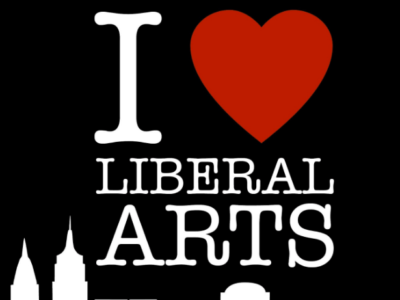Maybe your parents looked at you with disappointment when you told them you decided to major in English. You saw the question in their eyes, “Why don’t you study something more practical?” Maybe it hurt when they seemed exasperated with your decision to study something you love. The discouraging looks and questions prompt many to pursue different areas of study, but a degree can be useful without being technical or having a straightforward application.
We treat degrees and tracks like engineering and pre-med as though they somehow hold preference over Liberal Arts disciplines like history, philosophy and English, but no one degree holds more or less value than another. No matter what you study, your degree provides its own usefulness, and that includes those of us who study Liberal Arts.
Why do people object to Liberal Arts education? Truthfully, this baffles me, but it may stem from a simple misunderstanding about what a liberal arts education entails. “The ‘liberal’ in liberal arts, the root, is the idea of freedom,” said Joseph Spillane, Associate Dean for Student Affairs in the College of Liberal Arts and Sciences at the University of Florida.
“Liberal arts is essentially an area of study that a free person needs to be conscious of. Liberal arts deals with disciplines that force us to think about the foundations of a society on every level.” While studying philosophy doesn’t give you a set of equations to memorize, liberal arts teaches you how to think. Somehow we seem to have lost the belief that critical thinking is not only personally valuable, but a marketable skill.
We’re told when we decide to take up a liberal arts education that we’re being impractical. In fairness, the people who say these things to us generally feel concerned for our wellbeing, friends and family perhaps, but truthfully, liberal arts disciplines work mainly to build your mind so that you can think critically and solve problems (*cough* practical skills *cough*).
“That notion of impracticality is connected to employment and earnings. The concerns about liberal arts are that it would somehow put you behind in terms of employability and earnings,” Spillane said. “The reality is there is no particularly good data out there. A lot of the data is based on first year earnings out of college which is really misleading. It may be that future potential earnings are high but it doesn’t look like that right out of college.”
Putting too much faith in the numbers and not enough in our skills creates an unnecessary fear of poverty in the minds of liberal arts majors. I used to worry too. When I got looks of disapproval from people in the early years of my undergrad, I used to question whether I was doing the right thing by studying English. I loved it, I still do, but I worried about what I would sacrifice in the pursuit of my passion.
One day, I was headed to my survey of British literature class when I ran in to an old classmate from high school who seemed to look down on me when I told him what I was studying. As much as I wish I could say I brushed it off, it stung. Still bothered by this when I showed up to class, my teacher asked me what was wrong. When I told her what happened, she asked what he was studying and I replied, “Engineering.” She laughed. Looking at me, she said, “What’s funny is you actually have a better chance of getting a job at an engineering firm than he does because you can do more things.”
That claim hit me like a steam train. I had never heard anyone tell me my degree would be as useful as I felt it was. Later, she sent me an email with the link to an article describing all of the jobs perfect for English majors. I finally felt like I had someone on my side.
Studying liberal arts doesn’t have to come at a cost. You’re not giving up anything by studying what you love, you just need to recognize and claim that what you’re learning has value. “What the liberal arts does is provide people with a set of skills that are tremendously valuable. Many of the things employers say they are looking for are precisely the things liberal arts is designed to deliver,” Spillane said. “They’re looking for analytical skills, written and verbal skills, students who can work in teams. These are things we teach. These are things we do very well.”
At the end of the day, you’ll be able to articulate what your major taught you, and that will get you a job, not the name of your fancy degree on a piece of paper.
Liberal arts education churns out articulate and intelligent students who know how to solve problems, think critically, and learn. Somehow, those skills get so undervalued that we forget their true importance. “I would argue that it actually gives you more opportunities rather than less. Liberal arts majors are going to open up more opportunities than they’ll ever close off. You just need to be able to take a deep breath and explain how your liberal arts degree is useful,” Spillane said. “I’ve talked with employers who love liberal arts majors because they’re looking for students who can bring their skills to bear in the HR department, in the marketing department and all of these very important disciplines.”
You don’t have to be skilled with numbers, equations, or something “practical” in order to be a valuable commodity. As long as you recognize that, you can do anything.



















